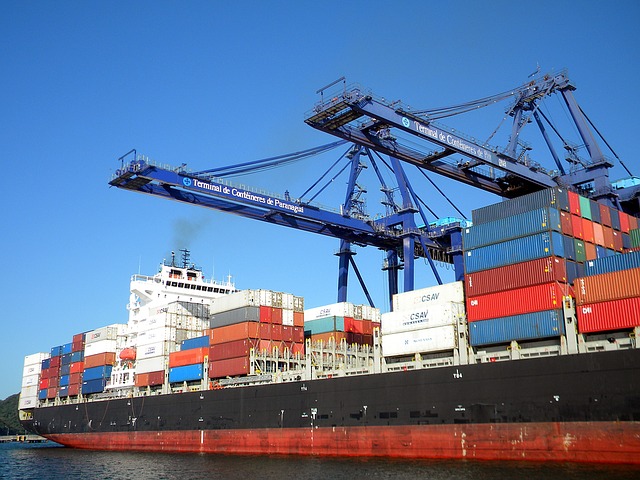



Trade agreements have a positive impact on EU agriculture - Commission study
An EU Commission study finds that trade agreements had a positive impact on the agri-food sector, leading to increased exports and a net positive trade balance.The EU trade agenda is set to have an overall positive impact on the EU economy and the agri-food sector, according to a new study published today. Trade agreements are due to result in substantial increases in EU agri-food exports, with more limited increases in imports, creating a positive trade balance overall. The study also confirms that the EU's approach to grant a limited amount of lower duty imports (through tariff rate quotas) is the best approach in terms of protecting specific vulnerable agri-food sectors in the EU.
The study carried out by the Commission's Joint Research Centre (JRC) covers the cumulative effects of 12 trade agreements on the agri-food sector by 2030, an update of a 2016 study. A theoretical modelling exercise, the study includes trade results for the agricultural sector as a whole, and sector-specific impacts on trade, producer prices and production volumes.


Commenting on the study, Executive Vice-President responsible for trade Valdis Dombrovskis said:
“The EU has always stood for open and fair trade which has enormously benefitted our economy, including agricultural producers. This study shows that we have been able to strike the right balance between offering more export opportunities to EU farmers, while protecting them from potential harmful effects of increased imports. Supporting the EU agri-food sector will continue to be a key element of the EU's trade policy, be it through market opening, protecting traditional EU food products or defending it against dumping or other forms of unfair trade.”
Agriculture Commissioner Janusz Wojciechowski said:
“The success of EU agricultural trade reflects the competitiveness of our sector. Reforms of the Common Agricultural Policy have highly contributed to this, supported by a global reputation of EU products as being safe, sustainably produced, nutritious and of high quality. This study, with more positive results than in 2016, confirms that our ambitious trade agenda helps EU farmers and food producers take full advantage of opportunities abroad while making sure we have sufficient safeguards in place for the most sensitive sectors.”
The study covers free trade agreements (FTAs) recently concluded or implemented by the EU, as well as trade agreements on the EU agenda. It includes two scenarios, an ambitious one (full tariff liberalisation of 98.5 percent of all products, and a partial tariff cut of 50 percent for the remaining products) and a more conservative one (full liberalisation of 97 percent, and 25 percent tariff cut for the others).
In addition, included in the scenarios, the five concluded FTAs are modelled on the basis of the negotiated outcome. The results of the scenarios are both compared to a reference scenario of business as usual in 2030. Environmental and climate effects do not fall within the scope of today's study, including any Green Deal related initiatives. The Sustainability Impact Assessments prepared in support of trade negotiations already provide the Commission with an in-depth analysis of the potential economic, social, human rights, and environmental impacts.


Main findings
Throughout the study, findings are for 2030, with the different scenarios compared to the reference scenario of business as usual.
For both scenarios, the results show a positive impact on the EU agri-food trade balance by 2030. While EU trade partners gain market access in the EU, it also allows EU exports to grow significantly. EU agri-food exports to the 12 FTA partners are set to increase by 25 percent (conservative scenario) and by 29 percent (ambitious scenario), while imports increase by 10 percent (conservative) and by 13 percent (ambitious), both compared to the reference scenario. This corresponds to the EU total agri-food exports increasing by €4.7 billion (conservative) and by €5.5 billion (ambitious), and total agri-food imports by €3.7 billion (conservative) and €4.7 billion (ambitious).
The study confirms that the EU agricultural sector can benefit from the EU trade agenda. A comparison of the 2016 versus 2021 cumulative impact studies shows the effectiveness of tariff rate quotas in mitigating impacts on our sensitive sectors such as beef, rice or sugar. In fact, the 2016 study already informed the strategy towards Mercosur and this update can be used as an evidence base for the need for Tariff Rate Quotas in ongoing trade negotiations. Furthermore, an ambitious future Common Agriculture Policy, supporting innovation, sustainability and the competitiveness of the EU farming sector, can also contribute to minimise any negative outcomes of trade negotiations while reinforcing the positive ones.










